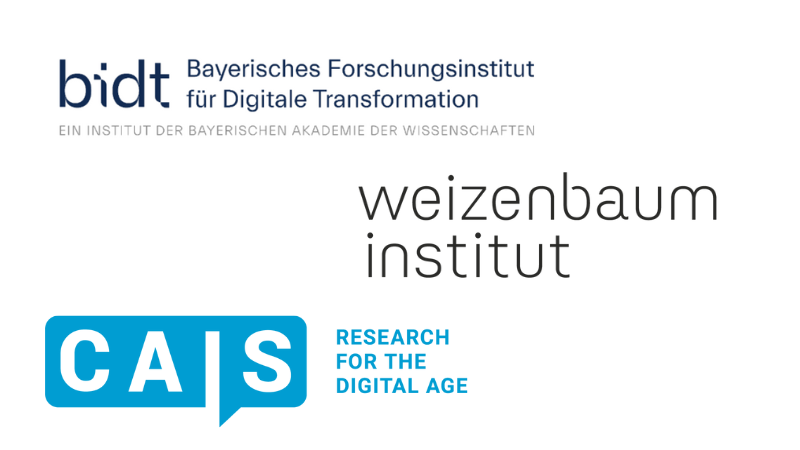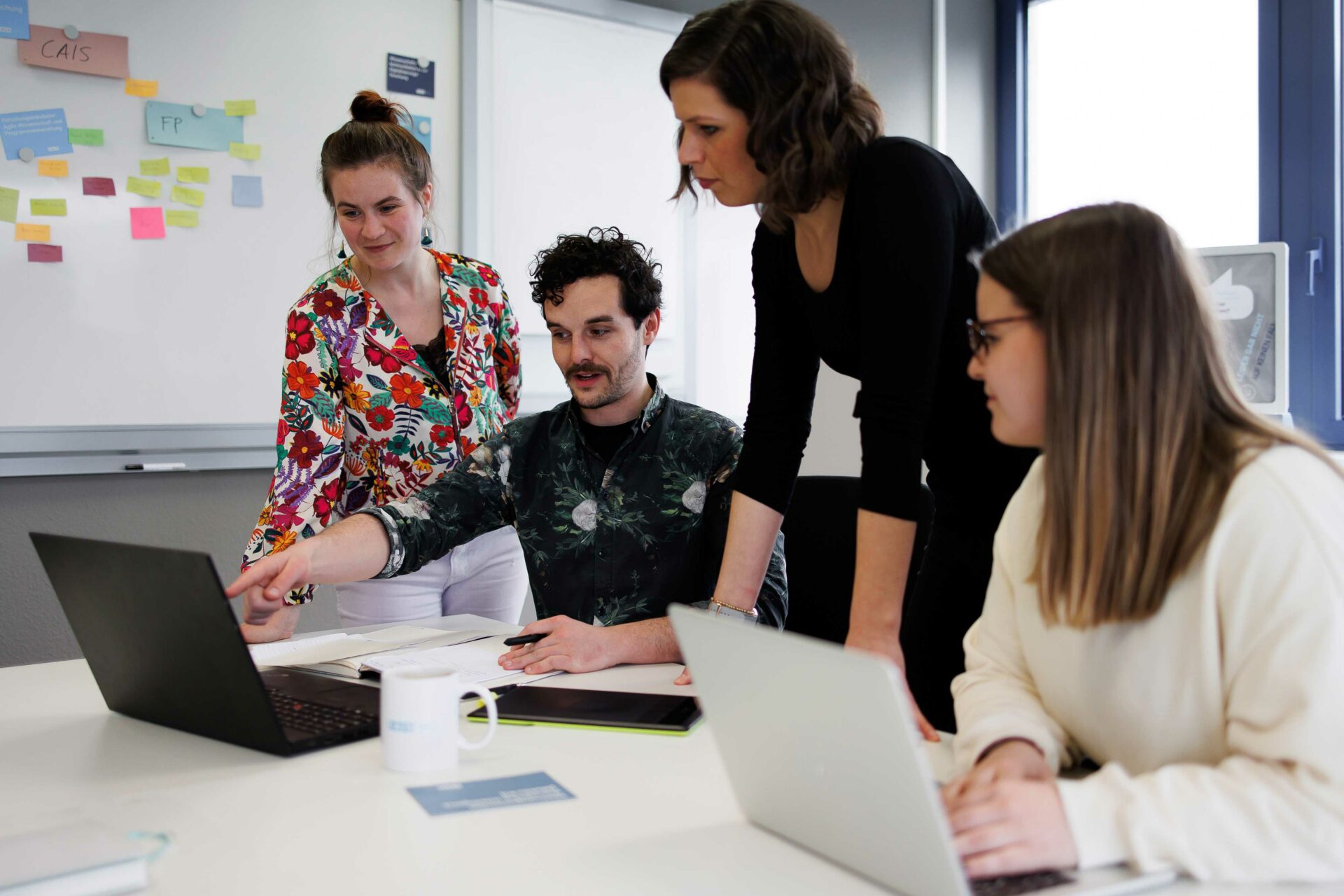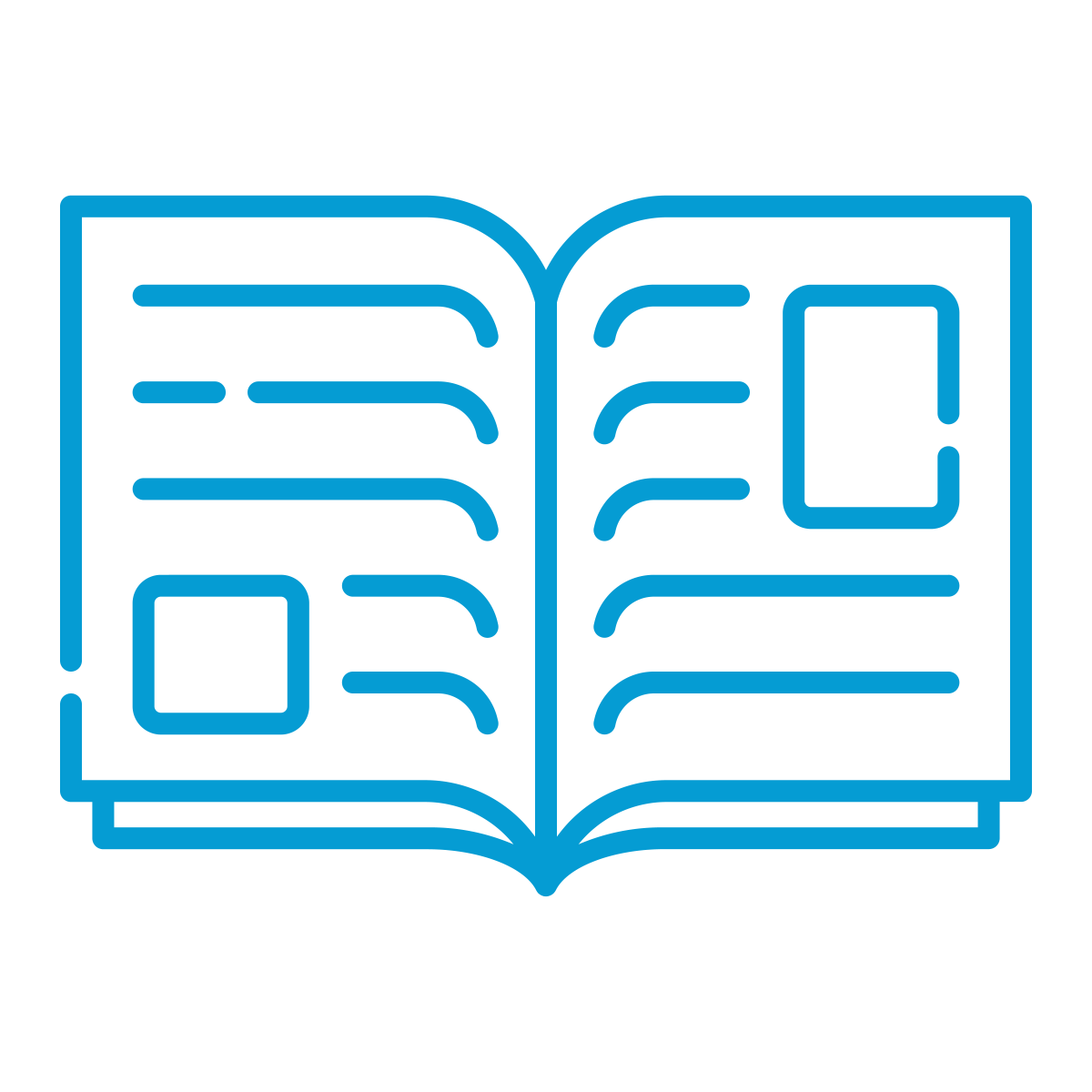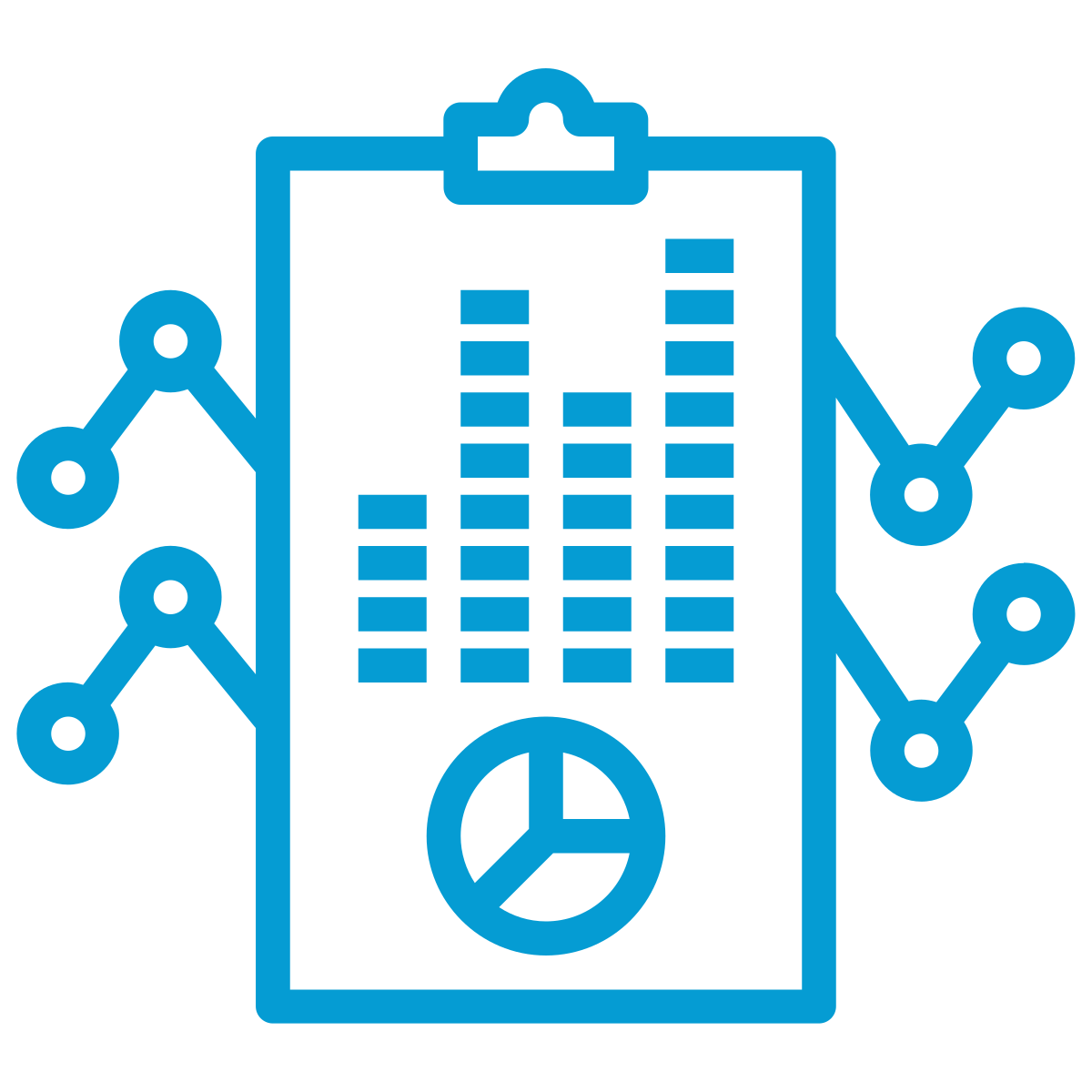Qualification Programme Digitalisation Research

Basic skills in the field of digitalisation are an important building block in the career planning of researchers from all disciplines. The three German institutes for digitalisation research – the Bavarian Research Institute for Digital Transformation (bidt), the Center for Advanced Internet Studies (CAIS), and the Weizenbaum Institute for the Networked Society – are providing their doctoral and postdoctoral researchers with a joint, interdisciplinary qualification programme in digitalisation research.

The Qualification Programme Digitalisation Research (QPD) imparts a broad range of knowledge about digital transformation and its research. It pools the knowledge and skills of the experts from the participating institutions. In four modules, researchers can attend events that make them capable of speaking on digitalisation topics and provide them with the tools for their own research and its public communication.
read more
Digitalisation research is a dynamic field at the interface of different disciplines – from social sciences, psychology and education to law and computer science, to name but a few. It explores the social impact of digital transformation, its opportunities and challenges, both from a historical perspective and with a view to current developments.
The following questions – among many others – are the focus of digitalisation research: How are new digital technologies changing the way people interact with each other, for example via social media? What impact do these technologies have on the self-image and organisational form of political systems? What kind of digital society do we want to live in and what must the framework conditions be like, for example in terms of data protection and security requirements, consideration of the ethical consequences of the use of technology or the media and data skills of the people who move around in it? What needs to be considered in advance when developing new technologies?
These exemplary topics already show that digitalisation research not only collects, evaluates and interprets data, but that it can influence social change processes itself with its classifications as soon as it presents its results publicly – and, in the best case, in a generally understandable way. An orientation towards the active shaping of society is therefore one of its most important characteristics, be it in political consulting, in education or in all other areas of society where (large) amounts of data are generated and can be utilised. The design of a user-friendly digital administration is just as important to her as the question of whether and how artificial intelligence will change artistic processes in the long term.
The three German institutes for digitalisation research – the Bavarian Research Institute for Digital Transformation (bidt), the Center for Advanced Internet Studies (CAIS) and the Weizenbaum Institute for the Networked Society – are providing their doctoral and postdoctoral researchers with a joint, interdisciplinary qualification programme to develop and consolidate skills in digitalisation research and to promote cross-institute networking. The programme aims to give a broad insight into the research field and, to this end, pools the knowledge and skills of the experts from the participating institutions.
The qualification programme is a voluntary training programme. In four modules, researchers can attend events on core topics of digitalisation research and its research methods to become able to talk on digitalisation topics and acquire the tools for their own research and its public communication.
After participating in the qualification programme and completing one or more modules, researchers have a sound basic knowledge that qualifies them for activities related to digitalisation both within and outside academia.
The three institutes award a joint certificate for each of the four modules.
read more
The Certificate in Digitalisation Research provides detailed information about the skills acquired through successful completion of the module. It is designed in such a way that it can be used for both academic and non-academic contexts. Certificates in the qualification programme can only be obtained by researchers from the three institutes. However, the individual courses are also open to other participants.
The performance requirements for each module are explained in the module descriptions. Of course, courses in the four modules can also be attended without the intention of obtaining a certificate. A certificate of attendance is issued for attendance at each course, which also sets out the course content.
Module certificates certify that participants have completed a series of courses that are coordinated with each other in terms of content and didactics. The basic and advanced segments of the individual modules build on each other and enable systematic and structured learning. Individual selection options promote the development of a skills profile tailored to individual interests and requirements.
A period of three to six semesters is recommended to obtain a certificate. Four to five courses in different formats (introductory courses, reading seminars, workshops, etc.) must be attended in each module. At least two courses are offered in each module per year, with the three participating institutes coordinating the organisation of the courses among themselves. The events in the qualification programme and the modules are continuously evaluated and further developed.
Contact
Dr. Nina Hahne

Networking and Junior Staff Development
nina.hahne@cais-research.de
Directly to …
The Modules

Module 1
Basic Knowledge Digitalisation Research
The module provides basic knowledge and an overview of the research field.

Module 2
Data Literacy and Digital Methods
The module teaches competencies in the informed handling of data.

Module 3
Science Communication and Co-Creation
The module teaches competencies in communicating with different audiences and co-creative approaches to knowledge production.

Module 4
Agile Research
The module enables researchers to engage in collaborative teamwork and teaches a reflective use of agile research methods.
Past events
Module 3: Workshop: Introduction to Science Communication
Module 3: Workshop: Introduction to Science Communication
The workshop provides a practical insight into various strategies, instruments and best practice examples of science communication.
Module 2: Workshop: Introduction to Online Surveys
Module 2: Workshop: Introduction to Online Surveys
The workshop gives a theoretical introduction to the design and logic of online surveys and provides insights into working with access panel providers. Participants will learn how to effectively set up an online survey using LimeSurvey.
Module 2: Workshop: Data Visualisation: How to design scientific figures
Module 2: Workshop: Data Visualisation: How to design scientific figures
In this workshop, you will learn basic design rules and how to apply those rules to your figures.
Module 1: Basic Knowledge Digitalization Research: Reading seminar: “Can machines think”?
Module 1: Basic Knowledge Digitalization Research: Reading seminar: "Can machines think"?
The reading seminar explores the question of whether machines can think from a philosophical perspective.
Module 4: Agile Research: Interdisciplinarity in Action: Methods for Fruitful Teamwork
Module 4: Agile Research: Interdisciplinarity in Action: Methods for Fruitful Teamwork
The workshop offers perspectives and practical advice in devising the structure of an interdisciplinary team and its work, and to practice a variety of possible methods that help teambuilding and teamwork.
Module 4: Agile Research: Research 101 – demystifying buzzwords and learning how to use them
Module 4: Agile Research: Research 101 - demystifying buzzwords and learning how to use them
The basic course conveys the central aspects of agile research. Participants can try out the transfer of agile concepts to their own scientific work.



